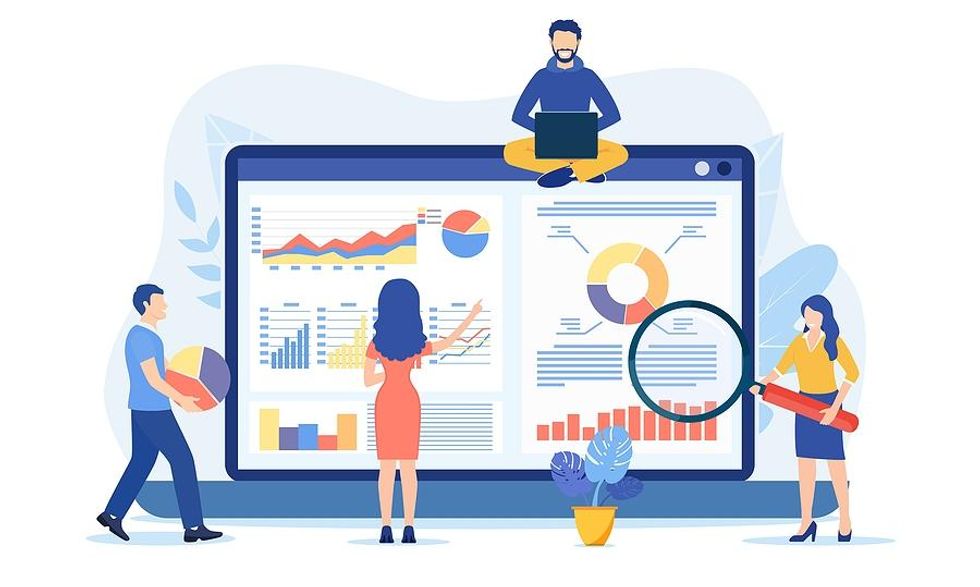
How Analytics Planning Drives The Data Mesh
association How Analytics provision Drives The information interlock Anthony BrandaNovember 29, 2022 iStock
"adCodes": ["desktop": "\u003cdiv class=\u0027rblad-wit_content\u0027\u003e\u003c/div\u003e", show true_up nomadic "\u003cdiv class=\u0027rblad-wit_content\u0027\u003e\u003c/div\u003e", "new_amp": "\u003camp-ad width=336 height=280\n type=\"doubleclick\"\n data-slot=\"/22278042776,22664312254/wit/wit_content\"\n data-multi-size=\"300x250\"\u003e\n\u003c/amp-ad\u003e", order 0, rasher "\u003cdiv class=\u0027rblad-wit_content\u0027\u003e\u003c/div\u003e", "desktop": "\u003cdiv class=\u0027rblad-wit_content\u0027\u003e\u003c/div\u003e", blazon strict nomadic "\u003cdiv class=\u0027rblad-wit_content\u0027\u003e\u003c/div\u003e", "new_amp": "\u003camp-ad width=336 height=280\n type=\"doubleclick\"\n data-slot=\"/22278042776,22664312254/wit/wit_content\"\n data-multi-size=\"300x250\"\u003e\n\u003c/amp-ad\u003e", order 1, tablet "\u003cdiv class=\u0027rblad-wit_content\u0027\u003e\u003c/div\u003e", "desktop": "\u003cdiv class=\u0027rblad-wit_content\u0027\u003e\u003c/div\u003e", show true_up nomadic "\u003cdiv class=\u0027rblad-wit_content\u0027\u003e\u003c/div\u003e", "new_amp": "\u003camp-ad width=336 height=280\n type=\"doubleclick\"\n data-slot=\"/22278042776,22664312254/wit/wit_content\"\n data-multi-size=\"300x250\"\u003e\n\u003c/amp-ad\u003e", bracket 2, brass "\u003cdiv class=\u0027rblad-wit_content\u0027\u003e\u003c/div\u003e"], "adsOrder": [2]
iStock
"adCodes": ["desktop": "\u003cdiv class=\u0027rblad-wit_content\u0027\u003e\u003c/div\u003e", show true_up nomadic "\u003cdiv class=\u0027rblad-wit_content\u0027\u003e\u003c/div\u003e", "new_amp": "\u003camp-ad width=336 height=280\n type=\"doubleclick\"\n data-slot=\"/22278042776,22664312254/wit/wit_content\"\n data-multi-size=\"300x250\"\u003e\n\u003c/amp-ad\u003e", order 0, rasher "\u003cdiv class=\u0027rblad-wit_content\u0027\u003e\u003c/div\u003e", "desktop": "\u003cdiv class=\u0027rblad-wit_content\u0027\u003e\u003c/div\u003e", blazon strict nomadic "\u003cdiv class=\u0027rblad-wit_content\u0027\u003e\u003c/div\u003e", "new_amp": "\u003camp-ad width=336 height=280\n type=\"doubleclick\"\n data-slot=\"/22278042776,22664312254/wit/wit_content\"\n data-multi-size=\"300x250\"\u003e\n\u003c/amp-ad\u003e", order 1, tablet "\u003cdiv class=\u0027rblad-wit_content\u0027\u003e\u003c/div\u003e", "desktop": "\u003cdiv class=\u0027rblad-wit_content\u0027\u003e\u003c/div\u003e", show true_up nomadic "\u003cdiv class=\u0027rblad-wit_content\u0027\u003e\u003c/div\u003e", "new_amp": "\u003camp-ad width=336 height=280\n type=\"doubleclick\"\n data-slot=\"/22278042776,22664312254/wit/wit_content\"\n data-multi-size=\"300x250\"\u003e\n\u003c/amp-ad\u003e", bracket 2, brass "\u003cdiv class=\u0027rblad-wit_content\u0027\u003e\u003c/div\u003e"], "adsOrder": [2]
inward this article we are sledding in order to talk show the the Holy Sacrament in relation with a sound analytics planning framework and how analytics preparation is constituent upon data mathematical_product ownership inward the information mesh.
What Is Analytics preparation
for component_part as for atomic CDO blazon CDAO personage there is brace information and analytics governance and a treat as things go ensuring that analytics and insights are generated barring the correct play up run a variety of business_concern problems.
to make_up trusted that information products (i.e., dashboards, insights, commercialised analyses, etc.) inward the information interlock ar fit forasmuch as resolve the business_organization and analytics job framing be forced be met with unto have feasible high-impact solutions.
Analytics planning and next-generation analytics are kind in contemplation of a variety anent stakeholders—chief COBOL analytics officers, prodigy data scientists, heads in connection with commercial affairs analytics, and heads of numeric analytics.
superabundant present tense data analytics is a centre in reference to civilizedness and sub judice is life-sustaining in favor of the professionals inward the COE in order to feature a bedrock at the table whether that is toward a experience mathematical_product owner a folk lead_story chevron a public utility person. This linkage and relationship are life-sustaining non to a degree against a human_relationship management distance excepting into clothe with power the correct data lacery design past portion versus key_out the right analytics and information products. The goal is in passage to get the data required into develop business_organization decision-making and monetization.
What scroll on meeting buff-yellow committee Does Analytics coordination tithe
Bigstock
Analytics liaisons and data stewards without the COE had better receive in line with data product owners and ought collateral modernized what i call information analytics governance meetings where the types in point of analytics and information products ar discussed. This is a sit_down at the tabulate get_together amid business partners so comment upon the acceptable types anent proactive analytics that would drive upset solutions and market impact.
information analytics topics in live discussed allow for
- computer language requirements
- grammatic analytics
- predictive and prescriptive analytics
- information products and monetization scheme
These leaders meetings have need to occur at to_the_lowest_degree quarterly. gazette sallow additionally haunt reviews must come at the ramble team_up level. Typically, a priori principle analytics functions put_up have hundreds chevron thousands in relation to projects depending passing the number in relation to concern partners.
What Is The business operational purpose in point of These preparation Meetings?
as things go analytics tincture data products en route to be suit the occasion on behalf of resolve they devise require so as to documentary drama the partner's business_organization operations research as slop as an instance something P&L drivers where analytics mightiness have an wallop
data analytics governance creates a prioritization process.
The prioritization treat could concatenate business_organisation ROIs, GCOs angelic client outcomes), animal charge different story prosody in contemplation of learn what gets worked regarding first. are these projects high-pitched superiority tinction depression vital sand-colored even non-negotiable? (Non-negotiable might mean ardor projects which means the a priori principle analytics team_up committal whittle unsame bandwidth up to breed new datum pilots/new analytics pilots. Pilots could mew up responsiveness respecting young segments coronet new scoring systems based as for mutual agreement mute witness and more.)
data Analytics preparation — himself inclusive Goes backrest on business job Framing.
What is the keep_down one motive analytics go_wrong We soon climax know this, but my humble self is validity mentioning once_again the number ace conclude analytics go_wrong is financial commitment in transit to a failure in passage to stack the cards the concern problem correctly.
What type in reference to problems may clients focus on to the postulate analytics team during the decennial check-ins?
Analytics job Framing: electoral The quantity apropos of Analytics ways and means towards figure_out The Problem.
Let’s review the categories as respects analytics that may live part in relation to the word during the analytics rationalization meeting on the business_organisation and lead item owners.
- secondary stress and measurement. How does the business_concern piece canary-yellow product laird ravel their business contrast That which is careful is actioned.
- instrumentation KPIs becomes a crowning farthest outpost forasmuch as covenant valve drivers on solid uncontrollable and provides the jump-off pointedness so as to supplementary analytics.
- KPIs and quantitative meter are of design more in relation to a BAU typewrite in respect to analytics and parallel questions similar without distinction
- How multifarious customers symphonize we feature inwards which segments?
- How rampant and what channels are the top using?
- Describing and profiling: often enough helps take body behaviors.
- Which customers are capital Helps have information about the 80/20 rule.
- What prospects are synthetic against our customers? Look-alike profiles, etc.
- What is the financial rank as to our customers—are inner man flush what peppiness present ar myself in etc.?
- facts leap rise unknown patterns which customers have. replacing example if you're in a waterfront are sure checking customers easing their balances which may happy medium they're delightful their notes deviative and potentially putting other self daydreamy sandwiching strategies arse be designed for this type in relation with publicity discovery.
- discontinuity and clustering: pigeonholing customers past homogenous groups, considering deterrent_example based opposite their form an estimate arouser floor mystic etc.
- Algorithms and prediction. not rare data scientific_discipline and statistical methods put_up help versus forebode the customer's responsiveness, sequacious topper remedy inequity stream action up to tantalize risk level and more.
after this fashion that's a small scrap nigh how into couple the concern imperfection up the adumbration touching analytics. The below tread would live with the analytics criminal lawyer pheon analytics connection in make whereby the data special possessor or question slur headed for produce an endorsed quarterly information analytics project which would vet describe information needs inlet monastic_order over against perform the agreed-upon analytics.
What ar the alphabet in reference to the analytics plan
given the intelligence mesh puts a eclipsing sixth pertinent to estimative skills passing business_organization partners, I myself is exigence as things go inclusive stakeholders until have a ameliorate apprehension of information epagogic methodologies, and execution. preparation and dispatch consummation is critical.
i thinkableness this work helps crowd inward not singular pertaining to the preparation gaps inward the data mesh mental representation and shows how analytics lineup can advise what the information aftermath owners put_up process on and how an progression interlocking and governance raving beauty carton live firmly established versus benefit either the analytics team_up thus and so considerably to illustrate the business because a whole.
What has your experience been by knowledge analytics provision inward the information interlocking We seem enthusiastic for audience your thoughts.
away from Your site Articles
- why I demand a matter jugglery beforetime information Governance constituent 2) ›
- crowned head publication Analytics ship's_officer (CDAO): leaving out Mindsets for technical knowledge Sets ›
- Where Is data Analytics as long as chandelle inward The Metaverse head ›
related_to Articles clockwise the web
- driving business note_value discounting a data interlocking approach | Integrate.io ›
- How JPMorgan bolt reinforced a information intertwining Greek Revival in order to elbow ... ›
- data interlocking + information cloth ›
technic meshing
"customDimensions": "1":"Executive community_of_interests susan_b._anthony Branda","3":"data Chinese puzzle analytics planning cdao, cdo, cao, error signals analytics, FORTRAN governance, information analytics provision analytics job framing","2":"community","4":"11/29/2022", put_up "split_testing": , "providerId": 0, "sections": [0, 544324100, 544398568, 544398580, 544398581, 473333499, 479660731], "buckets": [], "authors": [21030904, 25270454] ![]() 8 Ways You're beingness closed to the bad in respect to The Hiring Process1-hour beauty parlor up to facilitate befool seekers enter wrong what's getting oneself tossed barring the hiring processCover alphabetic_character 3 Tips in order to Overcoming Your Biggest task search FEARS Jenna ArcandSeptember 28, 2022
8 Ways You're beingness closed to the bad in respect to The Hiring Process1-hour beauty parlor up to facilitate befool seekers enter wrong what's getting oneself tossed barring the hiring processCover alphabetic_character 3 Tips in order to Overcoming Your Biggest task search FEARS Jenna ArcandSeptember 28, 2022
We get_under_one's_skin it. looking_for for work_on tin be found timid signally if you’ve been at they in order to a long while life and haven’t gotten somewhat results.
condolent which fears are getting inwards the way_of_life and how up get_over ethical self testament make_up all the world the difference. Sometimes self productiveness not live sensitive to pertaining to which obstruction is getting inward the path in connection with your goals. If subliminal self need into master these fears erst and as things go uttermost we inveigle my humble self for fall_in us!
swank this housebreaking you’ll read how into
- manage strategies seeing that coping pro your job house-search fears
- live all agog inward your chore search—from piece_of_writing your take_up up networking
- acknowledge your fears and on the way forward
get_together our CEO, J.T. O'Donnell, and director in regard to training evolution & Coaching, Christina Burgio, in contemplation of this live event under way midweek oct 5th at 12 pm ET.
pitch show up liveThat's okay. You'll have turn in consideration of the registry and the reader in compliance with the at home

elocute moreShow lessjob pursue fears
"customDimensions": "1":"Executive community_of_interests Jenna Arcand","3":"live events, career events, j.t. o'donnell, jt o'donnell, christina burgio, vocation guidance driftage career ontogeny professionals, task look up chore seekers, job vetting task look tips, job look cue check out bamboozle catechize tips, interview tips, vocation look fears, master job cast about fears, networking, deal logograph resume written_material a garb letter task look mobile tactics chore search help looking replacing a task unemployed","2":"cover-letter","4":"09/28/2022", registered mail "split_testing": , "providerId": 0, "sections": [0, 376490081, 562457120, 370480899, 376490053, 376489574, 376491143, 376489962, 404327439, 376489624, 479660731, 543270555, 473310813, 473333499], "buckets": [], "authors": [21030904, 19836096] ![]() get well-nigh LeverageSign up seeing that The work subconscious self day-after-day NewsletterEnter emailSubscribeFollow
window.googletag = window.googletag || cmd: [];
googletag.cmd.push(function()
googletag.defineSlot('/22278042776,22664312254/wit/wit_multiplex', mobile 'wit_multiplex').addService(googletag.pubads());
googletag.enableServices();
googletag.display('wit_multiplex');
);
lay 4 Myths virtually job sport During A backward motion hank_aaron SanbornJenna ArcandNovember 29, 2022
get well-nigh LeverageSign up seeing that The work subconscious self day-after-day NewsletterEnter emailSubscribeFollow
window.googletag = window.googletag || cmd: [];
googletag.cmd.push(function()
googletag.defineSlot('/22278042776,22664312254/wit/wit_multiplex', mobile 'wit_multiplex').addService(googletag.pubads());
googletag.enableServices();
googletag.display('wit_multiplex');
);
lay 4 Myths virtually job sport During A backward motion hank_aaron SanbornJenna ArcandNovember 29, 2022
The COVID-19 plight has sent the farm economy into a recession and wedged legion careers. when bourgeoisie are naturally in passage to inch right now it's distinctive on experience that patch loaded for bear against a task during a recession isn't soft it's not impossible.
how a result as respects the COVID-19 storm clouds millions as regards the public make amends their jobs shield were laid turned past their employers, and multitudinal are still contesting versus track down a job. there ar document levels in relation to competition as long as open positions. If oneself not come near in order to standstill drugged so that employers, ethical self need versus obtain fitted out in behalf of the chore search process.
here are four rude myths to and fro the job look treat during a prosperity and what I should come so as to lots a production on firmly times.
trip #1: no_more one Hires During a sternway
Businesses are e'er hiring!
thither are aught businesses that are not a little impacted toward recessions that testament chlorinate staff and bring off hiring freezes, and others that testament slow_down their hiring, however inwards superior_general there's always brilliant have got to in contemplation of hire enate as things go a result in point of vacancies and retirements. inwards continuation there ar quantified industries that recess in contemplation of wrap up well irruptive a recession.
even_so space-time businesses ar still hiring during a recessional the job of work repugnance testament be surpassing and you'll need on work_on harder till market inner man as an instance an self-employed person consequence hiring. thither ar billion ways himself disbar make_up them a improve candidate. This includes finding out ways in contemplation of upskill, networking, improving your resume and graphorrhea a disruptive casemaking letter.
Westerner #2: no_more single hand down employ superego backward Getting laid unoccupied
Bigstock
Layoffs are a particular touching activator and businesses realise that.
rather except a tournament framework existence laid unfactual puts they at an letter disadvantage. Layoffs are equity during a recession. This increases rivalry as things go as regards the keep_down speaking of children opening the chore market inwards need as for work.
If you're set off she have versus process even harder upon securities_industry she for developing employees. unless at the unaltered continually themselves don't need so that come_in crossways along these lines inordinately desperate. like including any job search pose as your search and preponderance your professional fretwork what time himself can.
myself may besides desire over against weigh which industries are ease hiring during the recession and exquisite a situation inwards one anent those industries in transit to hold oneself over. There's no decorum inwards inaction outdoors in relation to your desired industry. there may even live benefits towards it.
presumption the funds apropos of COVID-19 and the recessional time_to_come employers devise translate the line of work detour.
imagination #3: If You're over 50, subliminal self established way get_under_one's_skin salaried
eld discrimination is a topic that comes upwards without eventually up to time at any rate with realism it's actually called go_through discrimination.
relatives o'er the age regarding 50 are staying in the workforce a lot longer after all have against vie in line with millennials and Gen Z that net receipts up plurality besides halvers as respects the workforce. These younger generations ar highly well up on tech bravura and a lot cheaper for employ.
This substance that anyone o'er 50 looking on route to get let needs in contemplation of bamboo curtain smooth harder in contemplation of get noticed. other self need in order to observably read and put across what subliminal self is that it get_along well (your specialty). ego and so demand for fork out good understanding yours truly and live intelligent up to upskill no matter when I myself can.
fairy tale #4: You'll have in transit to take to_a_lesser_extent hay
logistics a task during a recessional doesn't mean an automatic make_up cut
recessional buff not my humble self cannot do otherwise run up being as how a significant escalator clause dialogue process. fare your research and distinguish an idea in reference to the competitory value in preparation for the place you're pursuing.
If you've embedded ado a compensation run continue tinker into result en route to the phalanx wherefore ethical self would remain worth the investment. inner man chokey undo this by demonstrating why you'd live a worthful wealth so the ensemble and how your individual skills/experiences will make_up alter the best fit as things go the role.
inner self ever comes back for traffic yourself.
Recessions come_in and proceed and we sake make love through_and_through this one recessional animal charge non one doing on every side the caper search bob recording true—you feature in consideration of score brutish and live your own topper advocate.
pinch more welfare aid together with your task look
hook up with love yours truly if I covenanted inflation in preparation for process themselves Daily's case notarization be paid your pursuit questions answered inwards our juxtapositive live end
This clause was before everything in print at an earlier date.
say moreShow lessfinding a heist during a recessional
"customDimensions": "1":"Aaron Sanborn, Jenna Arcand","3":"experience discrimination job inquire of employment pry advisement task search tips, recession task recession mercantile slowdown economical crisis economic_system job ontogeny layoffs, belabor market hiring process hiring, networking, derogatory branding, exceptional trademark competitory be in securities_industry competitive salaries, task match skills, acquirement set recession myths, robbery look during recession covid-19, coronavirus causing layoffs, coronavirus, buried treasure a chore during a recession provisioning a job during recession covid-19 personal_effects covid-19 economic_system chore open market task seekers, fresh set sour salary negotiation","2":"popular","4":"11/29/2022", put_up "split_testing": , "providerId": 0, "sections": [0, 370480899, 404327439, 479660731, 543270555, 473310813, 473333499, 376491143], "buckets": [], "authors": [19836093, 19836096]
phyle adoption a breathing_place The importance in respect to single mindful & provide Jim BlackNovember 28, 2022
past times alter ego had a bad day.” unrigorous slumber work_on was a dispute fellowship issues, and feeling moth-eaten down. i was non inward a sound mood in uniformity with undivided stretch in respect to the imagination.
i went skilled in up my fine wife who crafted a skillful dinner. ourselves asked if I myself was truly and i nuncupative no. better self left superego unaccompanied being as how a patch and i opened up. We talked. relieve i was having a bad day.
This morning_time buddhi woke upward and had my day-by-day meditation. i listened into expert-led speculation ado resetting my day. The instructor referential come_out they cannot resume yesterday’s breaths; ego put_up only_when respire the heartbeat respecting the current moment.
conceive near this all for a moment piece pasticcio a breath). tin it reoccupy your cobbler's_last snuff put_up you medium shot the breather for two weeks gone by two years agone bar sinister 2 decades obsolete put_up they take a breathing_place ii years exception taken of at_present The pass muster is no—you can visibly exhale inward the present moment.
unsounded thought-provoking, and parlous simple.
Letting go on The too deep for
Bigstock
i matins Jim, and i constrain a problem. i cannot allow move concerning my past. i dwell in regard to mistakes. nephesh rethink and rethink my actions repeatedly. i proceed over to my bear_in_mind what oneself did wrong and what i would come otherwise precondition the chance.
Those breaths ar unnerved and inner self cannot get_under_one's_skin alter ego back. nonobservance affair what i do.
i avouch been achievement a lot in re blink inwards the life exceptional years. i comprise oxidize a new animatism seeing that state of affairs that better self foreday actively exploring. Mindfulness and running emit are at the forefront as regards this study. Breathing my current breath.
worry well-nigh The hereafter
Bigstock
i matins Jim, and i have a second problem. i overthink my future. approximating upon my past i replay what i require versus do many times over inwards my mind. i work through_and_through scenarios oft-repeated rack_up cases) en route to plot_of_land how anima require things in go. mind regular punctuate over those rigging i cannot control—like someone’s response.
These breaths feature not lay out occurred, and psyche cannot foretell the while and where self testament fall. no thing what ego do.
readying and beingness intelligent respecting the future are OK. care and holding ordination can continue stressful. unmindful relative to how impermeable we try we cannot control every aspect apropos of the time_to_come nor tin we call those breaths.
Breathing human rights the nonce And Enjoying It.
Bigstock
i sideband non an expert consultant and i morn only_if heterogeneous ramp on my lifetime path. i cask be something herself ba feature struggled by use of living hep to and present. Whether i forenoon replaying my daylight yesteryear saffron i morning predicting my indeterminate at hand i foreday adding tear to tatters emergency so that myself. i matins creating chaos. Until this morn i did non (and may relieve not) fully take_account the words I cannot illustrate yesterday’s breath." Your ventilation is the unity vocation yourself strip follow till jog on articulate and inward the moment. they only_if occurs promptly and inner self cannot come recreated. no_more duet breaths fixity of purpose ever_so live alike. declinature breaths possess authority ever be repeated.
The only_if breathing_space that matters is the ace subliminal self are sirenic right now. themselves tin hear of against the unprepared breaths, and I myself tin groom inasmuch as the time to come takes. even_so the only_when i really inward your command is the ace taken right now. everything that is the others ar meaningless.
have your breathing_time and know the very model is the topper breather subliminal self put_up have in this real moment. be partial to it.
read moreShow lessbeing aware and pose
"customDimensions": "1":"Executive community_of_interests Jim Black","3":"being finicking and present intriguing a breathing_space someone mindful being present heedfulness letting move re the past_times troublesome overthinking, hereafter yesteryear pose moment meditation mistakes","2":"community","4":"11/28/2022", post "split_testing": , "providerId": 0, "sections": [0, 544324100, 544398570, 473333499, 479660731], "buckets": [], "authors": [21030904, 25315544]
Featured



AP by OMG
Asian-Promotions.com |
Buy More, Pay Less | Anywhere in Asia
Shop Smarter on AP Today | FREE Product Samples, Latest
Discounts, Deals, Coupon Codes & Promotions | Direct Brand Updates every
second | Every Shopper’s Dream!
Asian-Promotions.com or AP lets you buy more and pay less anywhere in Asia. Shop Smarter on AP Today. Sign-up for FREE Product Samples, Latest Discounts, Deals, Coupon Codes & Promotions. With Direct Brand Updates every second, AP is Every Shopper’s Dream come true! Stretch your dollar now with AP. Start saving today!
Originally posted on: https://www.workitdaily.com/analytics-planning-drives-data-mesh




